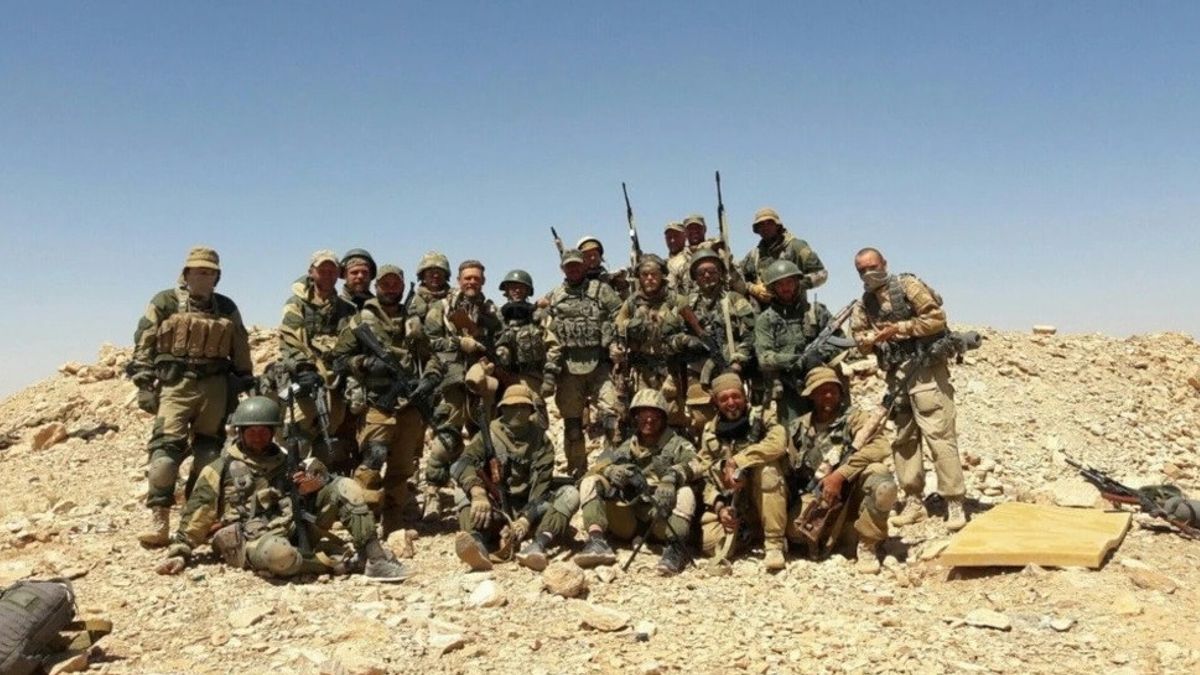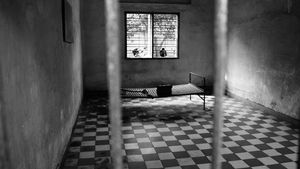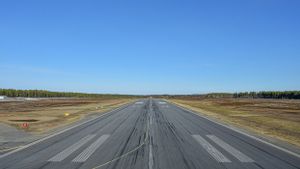JAKARTA - A former commander of the Russian Wagner mercenaries group who fled to Norway would like to apologize for the war he went through, ready to speak to bring the perpetrators of the crime to justice.
Andrei Medvedev, who crossed the Russia-Norwegia border on January 13, said he witnessed the killing and mistreatment by Wagner of Russian prisoners, who were brought to Ukraine to fight for the group.
"Many think I'm a bad guy, a criminal, a killer," Medvedev said, 26, as reported by Reuters on February 2.
"First of all, repeatedly, and again, I want to apologize, and even though I don't know how it will be accepted, I want to apologize."
"Yes, I served in Wagner. There were moments (in my story) that people didn't like, I joined them at all, but no one was born smart," he said.
Medvedev said he had decided to speak "to help ensure the perpetrators were convicted in certain cases, and I would try to make my contribution, at least a little."
He cited an incident in which he witnessed two people who did not want to fight back, shot dead in front of newly released prisoners who had been registered in Wagner.
Asked about another incident he witnessed, he said he could not comment on it at this stage, as Norwegian police investigations into war crimes are ongoing.
Kripos, Norway's national criminal police service, which is responsible for investigating war crimes, began questioning Medvedev about his experience in Ukraine.
He is a witness and is not suspected of anything other than illegal border crossings. Medvedev said he had nothing to hide from the police, adding "I did not commit any crimes, I am just a fighter".
In Wagner, Medvedev said he led the troops, received orders from platoon commanders and planned combat missions. He said he saw "an act of courage from both sides".
Medvedev further revealed that he was worried that he could be executed by the people by his side at any time.
"The most terrifying thing? Realizing that someone thinks of themselves as your partner, and who can come and kill you in an instant, or on someone's orders," Medvedev explained.
"People are looking for themselves. That's probably the most scary thing," he said.
Medvedev left Wagner after his four-month contract expired, despite his superiors asking him to work longer.
He said he fled Russia last month past the Arctic border, climbing through barbed wire fences and avoiding border patrols with dogs, hearing Russian guards firing as he ran through the forest and passed a frozen river separating the two countries.
Born in the Tomsk region of Siberia, she was placed in an orphanage when she was about 12 years old, after her mother's death and the loss of her father.
Medvedev revealed that he was recruited by the Russian military in 2014 when he was 18 years old. He served in Ulyanovsk's 31st Air Cross Brigade.
"It was my first place in Donbas," recalls Medvedev, refusing to provide further details.
The conflict in eastern Ukraine began in 2014, after a pro-Russian president was ousted in Ukraine's Maidan Revolution, Russia replied by annexing Crimea.
Meanwhile, Russian-backed separatists in Donbas, consisting of Donetsk and Luhansk, tried to escape Kyiv's control.
Medvedev said he had served several prison terms, including one for the robbery, and when he came out of prison last time, he decided to join the Wagner group, in July 2022.
He said he was not recruited directly from prison, but chose to join because he realized he was likely to be mobilized in Russia's regular armed forces.
Medvedev signed a four-month contract with a monthly salary of around 250,000 rubles (US $ 3,575). He crossed into Ukraine on July 16, he said, and fought near Bakhmut.
"It was chaotic. The road to Artemovsk was filled with the bodies of our soldiers," he said, using the name of the Russian place to name Bakhmut.
"The loss was heavy... I saw a lot of friends die," she grew bitter.
A special report published by Reuters last week found a cemetery in southern Russia, a burial ground for inmates who Wagner had recruited to go to war in Ukraine.
Separately, the Wagner Group said Medvedev had worked in the "wewewewewer unit" and had "belittled prisoners".
"Be careful, he is very dangerous," the group said in an emailed statement to Reuters, repeating earlier comments made by the group's founder Yevgeny Prigozhin, Russia's close ally Vladimir Putin about Medvedev.
The English, Chinese, Japanese, Arabic, and French versions are automatically generated by the AI. So there may still be inaccuracies in translating, please always see Indonesian as our main language. (system supported by DigitalSiber.id)













